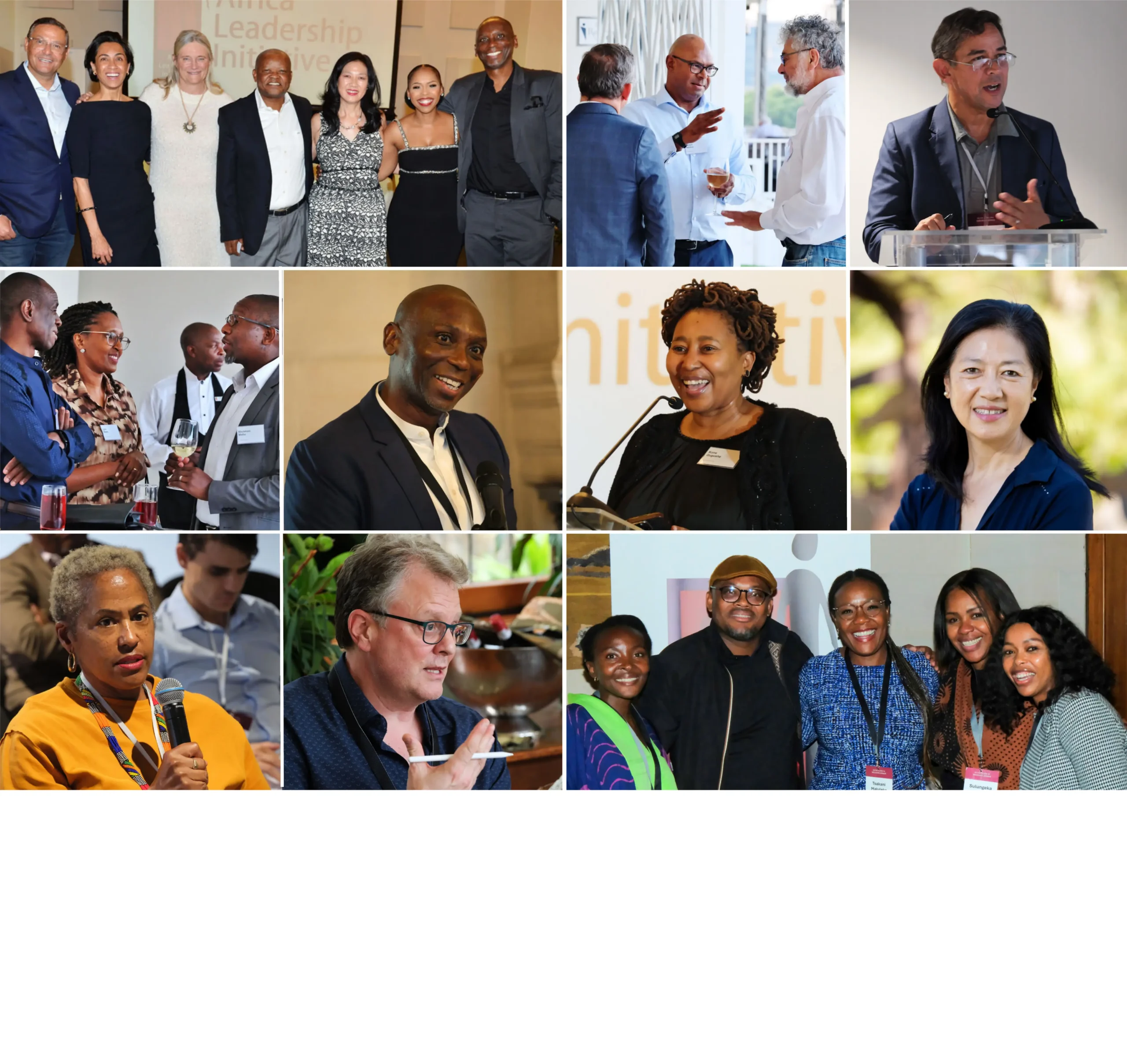
This month, ALI SA celebrates the outstanding achievement of Alan Storey (Class IX: Tariro), who has been awarded the 2025 Andrew Murray Desmond Tutu Prize for his book, The Bell, Banners and Blasphemy.
In a conversation that echoes the values of our fellowship, Alan’s story is one of imagination, courage and unwavering commitment to justice—a story that reminds us all that leadership is not about comfort, but about conviction.
Alan’s response to the award is characteristically humble and inclusive: “I was very surprised at the news of winning the 2025 Andrew Murray Desmond Tutu Prize…but very chuffed. I receive it as recognition not just for the book but for the Yellow Banner justice campaign lasting over 10 years by the church community that I was privileged to work with in the centre of Cape Town city. This was a community effort.” His words remind us that true leadership is seldom a solo venture. It is built on the collective imagination and courage of a community willing to act.
“I receive it as recognition not just for the book but for the Yellow Banner justice campaign lasting over 10 years by the church community that I was privileged to work with in the centre of Cape Town city. This was a community effort.”
The roots of the Yellow Banner campaign run deep in the Central Methodist Mission’s weekly reflections on justice and injustice. As Alan explains, the congregation often felt overwhelmed by the scale of suffering in the country, but they chose to focus on what they had: a beautiful building in a prime location. With creativity, the steeple became a platform for bold, hand-painted banners—echoing the black-on-yellow of the taxis parked below. This act transformed the church into a visible voice for the voiceless, using what was available to serve a greater purpose.

The campaign was not without risk. Alan and the congregation faced legal challenges for their acts of civil disobedience, but their resolve was clear. They believed that the injustices they highlighted were a greater threat to society than breaking city by-laws. For Alan, when rules protect aesthetics over dignity and wellbeing, it is justifiable to challenge them. The banners became a rallying point for the marginalised, challenging both societal norms and the church’s own silence.
Reflecting on the role of ethical leadership, Alan is candid about the church’s struggle to speak truth to power. He notes that it is often harder to confront friends than adversaries and that the church has sometimes been too close to power rather than challenging it. He calls for institutions, especially those seen as moral authorities, to confess their complicity in patriarchy, climate destruction and inequality and to offer a humble and imaginative alternative.
Alan’s message is rooted in a radical solidarity with the poor. He urges leaders to prioritise the needs of the most vulnerable, reminding us that the poor are the legitimate shareholders of every institution. For Alan, a liberated society is one where the poor are no longer poor and solidarity is experienced as a gift, not a burden. He believes that as the poor are relieved of hunger and lack of opportunity, the wealthy may also be relieved of anxiety and fear.
He also challenges the false divide between sacred and secular, insisting that all is sacred and every place is to be treasured. This perspective calls on leaders to integrate values into every aspect of life and leadership, seeing every space as an opportunity to serve the Good Society.
“Trust requires truth to pick up speed, but truth requires trust to be shared. In other words, truth and trust are in a symbiotic relationship with each other. Transparency enables this symbiotic relationship to flourish.”
Alan is forthright about the cost of silence, recognising that silence in the face of injustice is complicity. He acknowledges that fear is often the real enemy to courageous leadership and that ethical leadership is grounded in love that casts out fear and in the courage to speak for those who cannot.
On the question of building resilient institutions, Alan offers a practical insight: “Trust requires truth to pick up speed, but truth requires trust to be shared. In other words, truth and trust are in a symbiotic relationship with each other. Transparency enables this symbiotic relationship to flourish.” He reminds us that there are no shortcuts—these are all relational terms, and relationships are rooted in the soil of time.
Alan Storey’s journey is a beacon for all Fellows: a reminder that leadership is measured not by comfort or acclaim, but by the courage to act, the humility to confess and the imagination to see every space as sacred. As we celebrate his achievement, let us ask ourselves: How will our leadership be good news for the poor? How will we ring out for justice in our own communities?
As the African proverb says, “When the music changes, so does the dance.” Alan Storey and the Central Methodist Mission have changed the music—now it is up to us to join the dance for a Good Society.
The Bell, Banners and Blasphemy is available to order directly by emailing aslowwalkbooks@gmail.com.









